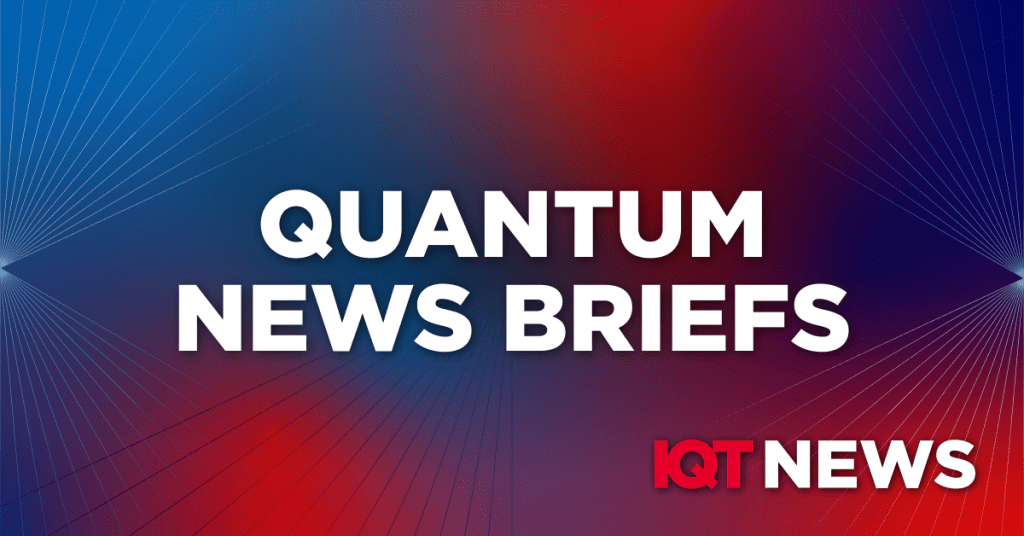News Releases:
DARPA to host meeting, discussions with quantum Computing companies
The goal of the hybrid in-person and virtual proposers day is to introduce the quantum computing research and development community to DARPA and the QBI vision and goals, explain the mechanics and milestones of the QBI solicitation, and solicit and reply to questions from attendees.
DARPA will also offer individual, brief sidebar discussions (in person or virtually) with QBI Program Manager Joe Altepeter. Sidebars will be scheduled following the proposers day on September 3 (in-person and virtual) and on September 4 and September 6 (virtual only both days). The proposers day and sidebar discussions are open to U.S. and international quantum computing companies and organizations.
Rigetti introduces novel chip fabrication process for scalable, high performing QPUs
The basis of Rigetti’s superconducting qubits are Josephson Junctions (JJs), which are two thin layers of superconducting metal (aluminum) separated by a barrier (aluminum oxide). Electrons are able to tunnel across the insulator from one electrode to another — resulting in a characteristic frequency for the qubit that allows for it to be controlled and measured. While the reproducibility and energy loss in these junctions has been difficult to control, the simplicity, scalability, and ease of fabrication of these superconducting devices makes them one of the most desirable platforms for building quantum computers. Finding a solution to the junction reproducibility problem has been a long-standing goal in the field.
In Other News:
Google outlines implementation of NIST’s post-quantum cryptography standard
In a recent blog post, Google’s Royal Hansen and Phil Venables provided an in-depth look at the newly finalized post-quantum cryptography standards released by NIST. They explore what these standards mean for the future of encryption, how Google is already implementing them, and offer guidance for organizations preparing for the transition to a quantum-resistant security landscape.
Google takes these risks seriously, and is taking steps on multiple fronts. Google began testing PQC in Chrome in 2016 and has been using PQC to protect internal communications since 2022. In May 2024, Chrome enabled ML-KEM by default for TLS 1.3 and QUIC on desktop. ML-KEM is also enabled on Google servers. Connections between Chrome Desktop and Google’s products, such as Cloud Console or Gmail, are already experimentally protected with post-quantum key exchange.
Google engineers have contributed to the standards released by NIST, as well as standards created by ISO, and have submitted Internet Drafts to the IETF for Trust Expressions, Merkle Tree Certificates, and managing state for hash-based signatures. Tink, Google’s open source library that provides secure and easy-to-use cryptographic APIs, already provides experimental PQC algorithms in C++, and our engineers are working with partners to produce formally verified PQC implementations that can be used at Google, and beyond.
As we make progress on our own PQC transition, Google will continue to provide PQC updates on Google services, with updates to come from Android, Chrome, Cloud, and others.
Singapore authority teams up with finance and tech firms on quantum security
A Memorandum of Understanding (MoU) paves the way for the organisations to pool brainpower to study the application of what is known as ‘Quantum Key Distribution (QKD)’ in financial services.
In the coming months, MAS and participating banks – DBS, HSBC, OCBC and UOB – will experiment with QKD solutions jointly provided by SPTel and SpeQtral in three areas.
First, they will ‘conduct’ a QKD proof-of-concept sandbox (isolated test space) on financial sector use cases to ‘evaluate its viability, effectiveness and applicability to financial services, and determine the feasibility of using QKD for quantum-safe communications within the financial sector’.
Second, they will ‘validate the security properties’ of QKD, such as detecting eavesdropping attempts and preventing unauthorised access or tampering of QKD transmissions. This will help to verify QKD’s capability to provide robust security for sensitive data transfers, and enhance trust in its deployment within the sector, MAS states in its announcement.
Third, they will ‘enhance technical competencies through knowledge exchange to equip MoU participants with the skillsets to support the transition towards adopting quantum security solutions when they are commercially available.’
